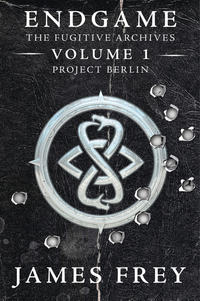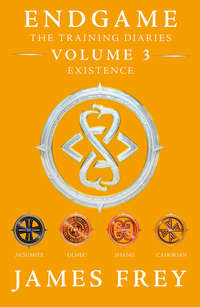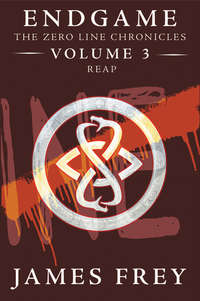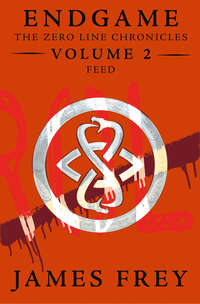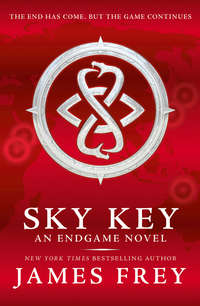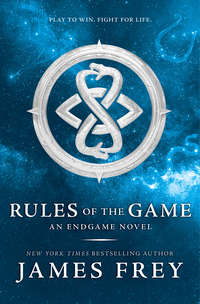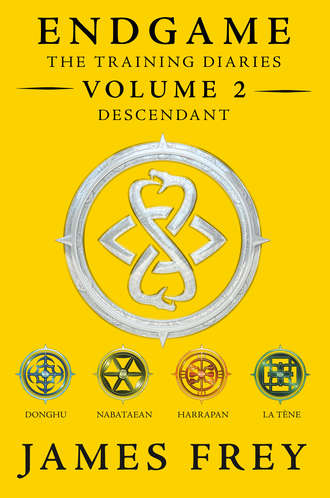
Полная версия
Descendant
“Sort of a mountain,” he agrees. “Do you know what its name is?”
Aisling shakes her head.
“It’s called the Lorelei,” he tells her.
Aisling shouts happily, “Mama!”
He’s taught her well.
He shows her Lorelei’s picture every night, tells her stories of the mother she’s already started to forget. Lorelei has been dead for one year, three months, and four days. Aisling doesn’t cry about her mama anymore, or ask for her. Declan doesn’t know whether this is tragedy or relief.
“Yes, your mama was named after this Lorelei,” he says. It’s not precisely true. The German poet Heinrich Heine wrote a poem about the Lorelei, and her parents named her after that.
“Ich weiß nicht, was soll es bedeuten, Daß ich so traurig bin,” he recites for his daughter now, as he so often recited for his wife. He loved this about Lorelei, that she was born inside a poem. She didn’t speak German, but he does, of course—he speaks almost every language—and she liked to hear the words in their original language, in his voice. He translates for Aisling, now: “‘I don’t know what it should mean that I am so sad.’”
But he does know what it means.
He knows why he’s brought her here, to this deserted spot near Saint Goarshausen, where he feels like his wife is watching over them both. He and Lorelei came here on their honeymoon—she wanted to show him her rock. It’s not every woman who has her own mountain, she told him then.
They were so happy.
“We can’t keep running forever,” he says. He’s talking to himself; he’s talking to Lorelei. He takes Aisling into his arms. She squirms for a moment, then settles happily onto his lap. “We can’t keep living like this. You can’t keep living like this.”
He came here so he could find the strength to admit it.
He was the Player; he was trained to give everything to the fight. To believe he could win until his dying breath.
But running isn’t winning. Even if they could run from the line forever, that’s no way for Aisling to grow up.
That’s no way to carry out the promise he made to himself, that he would do everything he could to stop Endgame, to persuade his line that they’ve made a terrible mistake.
He’s done with running away.
He’s going to do what he’s been trained to do, and fight.
Maybe he will lose.
Probably he will lose.
But either way, Aisling will have a place to grow up, people who love her, a home. Either way, Lorelei will be avenged and Declan will know he’s done everything he can to make things right.
“That’s it, Aisling. No more running.” The thick clouds blow open for a moment, and a splash of sun lights up the Lorelei. “Now we make our last stand.”
The climb is more difficult than Declan remembers. Of course, the last time he was here, he didn’t have a small toddler strapped to his chest.
The last time he was here: it was six years ago, the culmination of many months of searching. For clues, for artifacts, for answers.
“None of this is ours to know,” Pop told him, when Declan explained why he was traveling the globe, why he was so desperate to track down the evidence of his forebears, the Players of the La Tène line stretching back for hundreds and thousands of years.
“How can it not be?” he asked Pop. “We’re supposed to give our lives up to a cause we don’t even understand? What sense does that make?”
“It made perfect sense to you until last year,” Pop said, irritable. They’d had the conversation one too many times. “What changed?”
“Nothing,” Declan said, because he’d promised Le Fond never to breathe a word of them. “I just started asking questions, that’s all. That’s not a crime.”
“Be careful,” Pop warned him. And when Declan said that there was no need to be careful, that he could climb a 1,500-meter mountain in his sleep, Pop said, “That’s not what I’m talking about.”
Six years ago, Declan summited a peak in the Italian Alps, high above the Lago Beluiso, and picked his way into the darkness of an ancient cave. He aimed his headlamp at a wall covered in primitive paintings. They looked as old as time itself.
There was the painting of 12 humans standing amongst tall stones—Stonehenge, he’d realized almost immediately. The sacred place.
That understanding had come easily. The others had taken time. Days of fasting and meditation to clear his head, hollow it out so he would hear the gods speak.
What did it all mean, the picture of the strange creature descending to Earth with a stolen star? The six men and six women screaming into the skies? The woman in the boat, so alone on a desolate sea?
He stared at the images until he was half mad with hunger and solitude, and only then did truth cut through the fog. He saw what he was meant to see.
He saw Endgame for what it really was: the vicious cycle, the evil joke.
The end of days.
Now he returns with his child. He returns to wait for someone to come for him, to kill him and take her away. Six years ago, he returned to Queens bursting with his nightmare truth—and no one would hear it. His father refused to listen. The High Council commanded his silence.
Now they will come for him, to this place where he found those unwanted answers.
Maybe they will finally listen.
Maybe they will see what he saw.
It would be worth it, giving up his life, giving up his daughter, if there’s even a chance that he can make them hear the truth.
He hopes it won’t come to that. But if it does, he’s prepared.
He lights a fire, he roasts some meat, he feeds Aisling and himself, he sings his daughter to sleep, and he waits.
He waits for two days and two nights.
Then they come for him.
“We know you’re in here, Declan.” Molly shouts. “Show yourself.”
Declan holds on to Aisling as he steps into the light. She giggles and waves at her older cousin and her grandfather. It warms him, that she still recognizes her family. It means she hasn’t forgotten everything yet. Some part of her must still remember her mother.
“We don’t want to hurt you,” Declan’s father says; he takes aim with the rifle. “Just give us the child.”
“You won’t shoot me while I’m holding her,” Declan says, hopes. “You won’t risk it.”
“It’s over,” Pop says. “Give us Aisling. Come home with us. We’ll work this out.”
“There’s nothing to work out,” Declan says. “Look around you—simply open your eyes and see. Why do you think I brought you here?”
Pop sighs heavily. “I don’t know why you do anything you do, Declan.”
“We have to break the cycle, pop. We have to. We can stop this now. Look at the paintings, Pop.” Declan shines his flashlight at the cave wall. “You see those twelve figures, those have got to be Players, and I’m certain that the figure in the center—”
“You will stop this nonsense or I will shoot you where you stand,” his father snaps.
So that’s it. Even now he won’t listen. He won’t see. Declan’s given his father all the chances he can. “I tried,” he says, then slips a hand into his pocket and presses a small switch.
The cave mouth explodes in a hail of shattered stone. Molly dives out of the way, lightning fast, but Pop’s body is no longer as quick as his instincts. He takes a rock to the head and goes down.
Somewhere, in the back of Declan’s mind, where he’s still capable of rational thought, he feels sorry to see it.
There’s no time for regret, not as long as Molly’s still alive. She’s fast, but she’s still been caught off guard—as soon as he sets off the device, Declan is in motion before Molly has regained her footing. Declan leaps over his father’s body and launches himself toward her, swinging the Falcata at her neck. Molly dodges the blow, comes at him low and hard with the knife, slashing at his knees, trying to knock him off balance so she can get a clear shot at his jugular. He stabs the sword through her foot.
First blood.
She shrieks with rage and lashes out with the blade. Metal bites into his flesh—cheek, shoulder, side, collarbone, but all of them flesh wounds, because he is always one step ahead of her, knows what she’s going to do before she does, because, of course, he trained her.
He was her, once. He understands how she thinks—but she will never understand him. What it’s like to fight for your child, and the memory of your wife.
He is motion; he is fire; he is a being of light and fury. Everything he’s taught her not to be. He taught her control and dispassion. He taught her to be cold and rational. To think through every strike, to form a strategy and follow through.
She’s no match for the wild creature he’s become.
No match for the Falcata, which whistles through the dark, then stops short, hitting flesh, hitting bone.
There’s a soft moan, and then Molly drops to the ground.
“I didn’t mean to kill her,” Molly says, blood pouring from a gaping wound on her abdomen, bubbling at her lips as she tries to speak. “I loved her.” Declan tells himself that there’s no joy in this, no vengeance. There’s only necessity, safety for him and his daughter. There’s only a 17-year-old girl that he once loved, lying in the dirt. Then she says, “It’s your fault that she’s dead, you know. You killed her.” And he brings down the sword again, this time to her throat.
She will never speak again.
“You’ve killed the Player.”
It’s his father’s voice.
Declan turns around, slowly. His father stands behind him, bloody and unsteady. He holds Aisling in one arm.
It’s over.
“I’ll never understand how it came to this,” Pop says. Aisling has wrapped her chubby arms around her grandfather’s neck. She burrows her face into his shoulder.
Propped on his other shoulder is the rifle.
“Is there another way?” Pop asks. “Please tell me there’s another way.”
The other way is surrender. Declan could raise his hands, palms out, agree to return to Queens with his father. Allow his Pop to raise Aisling in his own image, turn her into a warrior. Try his best to be a voice of sanity, keep asking unwanted questions, forcing their faces into disturbing truths, bide his time until Aisling is ready to listen.
Except that he’s killed Molly; he’s killed the Player. Even if Pop can forgive that, the High Council won’t.
Even if they could, Declan couldn’t forgive himself.
For losing Lorelei, for losing Aisling, for losing everything.
Declan can’t stand by and watch as they turn his daughter against him.
“I’ll never stop trying,” Declan says honestly. “Not as long as I’m alive. There is no other way.”
Declan’s father nods. He knows when his son is speaking the truth. He strokes Aisling’s hair and levels the rifle.
“Promise me something?” Declan asks.
“If I can.”
“Tell her about me?”
“Of course.”
“No,” Declan says. “Not that easy. Not your version of me. Not just the parts you approve of. Tell her what happened here. What I tried to do for her, what I believed—whether you agree with it or not.”
Pop doesn’t say yes or no, so Declan presses on.
“There’s a small notebook, tucked into her carrier. It’s my journal. Everything I’ve learned about Endgame over the last few years, everything I’ve been trying to tell you. It’s in there. Even if you refuse to look at it—someday, let her make her own choice. I need her to understand why her parents left her alone.”
“She’ll never be alone, son. I promise you that.”
“She deserves to make her own choices someday, Pop. She deserves answers.”
“She’ll get them,” he says. “When she’s old enough. When she’s ready. I can promise you that.”
“Okay, then. Do what you have to do. I’m ready.” Declan drops his head. He thinks about the day Pop taught him how to fire that rifle, and how much he wanted to please his father and strike the bull’s-eye. He thinks about the first night he kissed Lorelei, his fingers threaded in her long, black hair, the street falling still around them, the stars shining impossibly bright, such a rare thing in New York. He thinks about Aisling, the sweet, clean smell of her scalp, the pressure of her little fingers curling around his thumb, the musical chime of her laughter, the delight she takes in squirrels and birds, chasing them through the trees.
Конец ознакомительного фрагмента.
Текст предоставлен ООО «ЛитРес».
Прочитайте эту книгу целиком, купив полную легальную версию на ЛитРес.
Безопасно оплатить книгу можно банковской картой Visa, MasterCard, Maestro, со счета мобильного телефона, с платежного терминала, в салоне МТС или Связной, через PayPal, WebMoney, Яндекс.Деньги, QIWI Кошелек, бонусными картами или другим удобным Вам способом.


